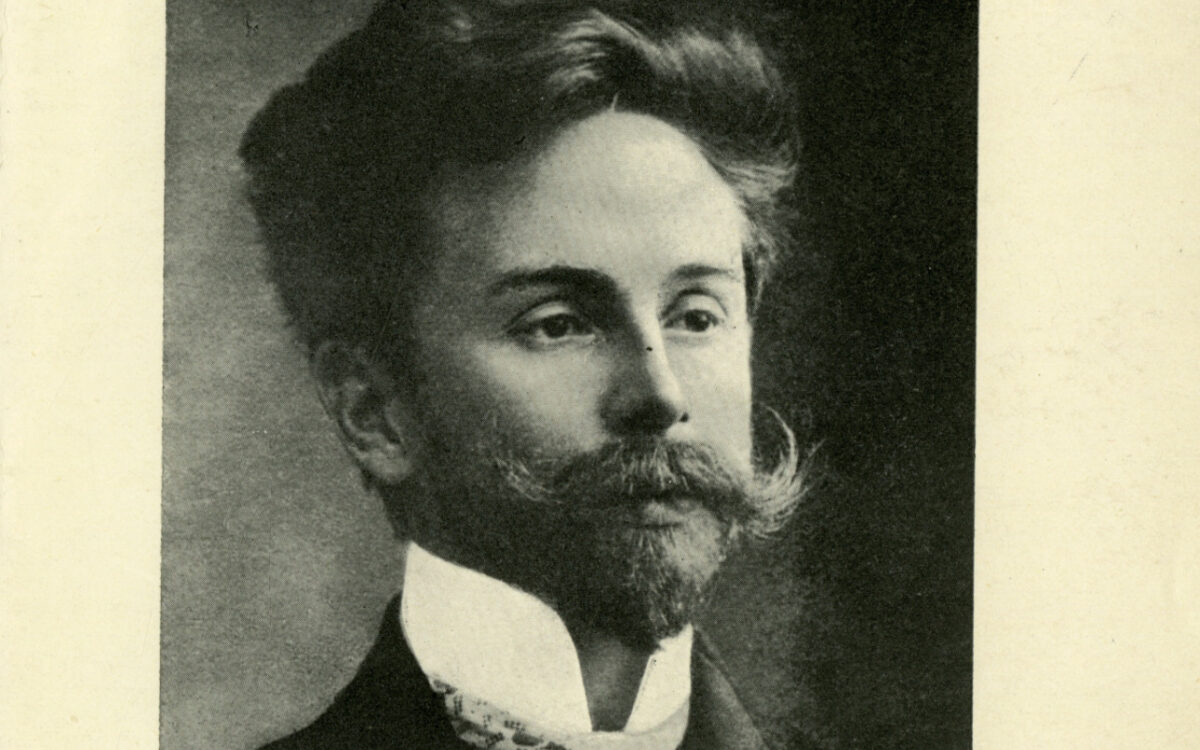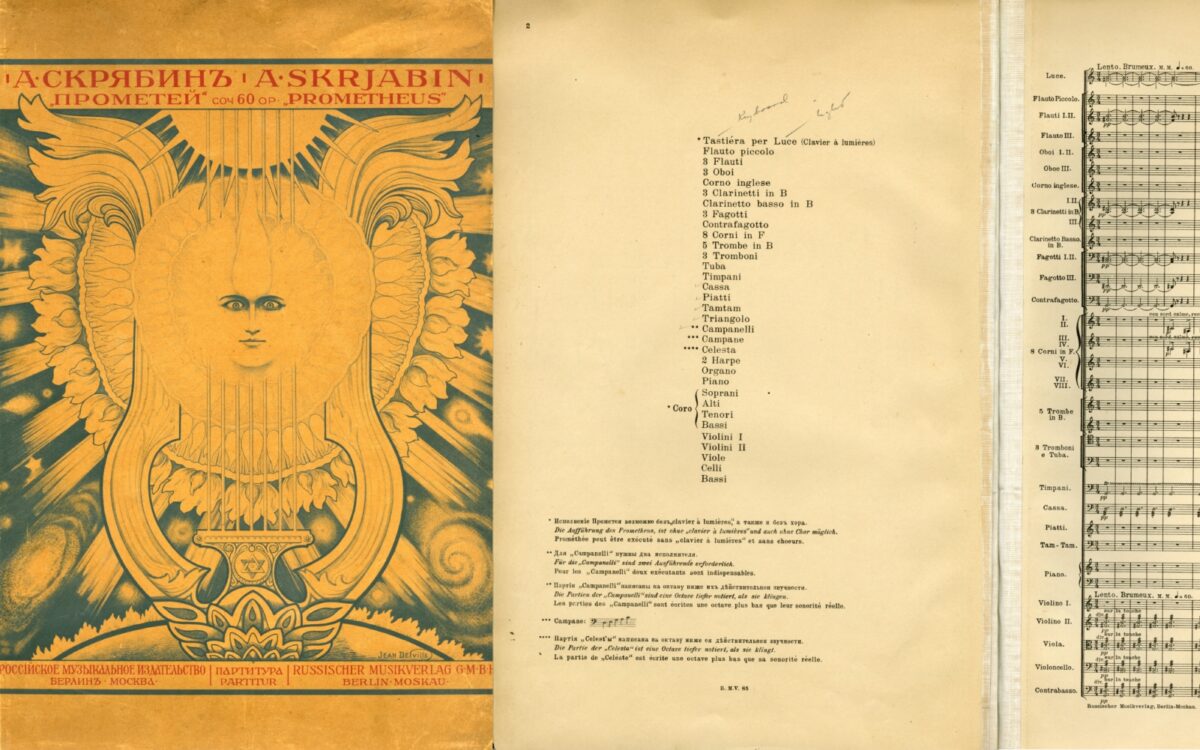Koussevitzky as Publisher: Éditions Russes de Musique and a Livelihood for Composers
One of the ways in which Koussevitzky championed new music was through the establishment of his own publishing company, Éditions Russes de Musique. All royalties went to the composers, with the publisher merely recovering costs. Composers also received a stipend to cover works in progress, and the company retained an artistic board that vetted potential composers. Rachmaninoff, Scriabin, Taneieff and Medtner were on the first advisory board.

Scriabin's Prometheus, Poem of Fire, published by Éditions Russes de Musique
After several years with no publisher, Scriabin was in financial straits: Koussevitzky found that one of them had to sit on a windowsill to converse as there was only a single chair in Scriabin’s house. Koussevitzky engaged Scriabin in his new publishing venture, both as a composer receiving a stipend and as a member of the company’s advisory board.
Paraphrased and translated anecdote from Serge Koussevitzky: Volume One, The Russian Years by Victor Yuzefovich, Moscow: Languages of Slavic Cultures, 2004
Scriabin and Éditions Russes de Musique
Portrait photograph of composer Alexander Scriabin (1872-1915)
Serge Koussevitzky and composer Alexander Scriabin first met in Switzerland in 1908. When Scriabin’s original publisher died in 1904, the new management was leery of supporting his newer compositions. Koussevitzky engaged Scriabin in his new publishing venture, both as a composer receiving a stipend and as a member of the company’s advisory board. Unfortunately, a promising relationship unraveled over controversies around compensation and Scriabin’s need for increasing adulation. Scriabin died of blood poisoning in 1915 with no reconciliation with the conductor, although Koussevitzky would continue to perform the composer’s works.
Photographer unknown
Éditions Russes score of Scriabin’s Symphony No. 5, “Prometheus, A Poem of Fire”, depicting the cover, instrumentation and title page
Published by Serge Koussevitzky’s own company, the Éditions Russes de Musique, Scriabin’s Symphony No. 5 was premiered in Moscow in 1911 with Koussevitzky at the podium and the composer at the piano. Koussevitzky later brought the work to Boston as part of his first season as head of the Boston Symphony Orchestra.
Reproduction of pastel by Leonid Pasternack depicting Alexander Scriabin and Serge Koussevitzky in performance together
This pastel drawn by the father of author Boris Pasternack depicts the March 2, 1911 world premiere of Scriabin’s Symphony No. 5, “Prometheus, A Poem of Fire” with the composer as the piano soloist and Koussevitzky as conductor. Despite the rupture in their relationship shortly after this premiere, Koussevitzky nevertheless bought the pastel when he discovered it while living in Paris, and he brought it with him to America. According to an article on the pastel’s history, it was still hanging at Seranak, the Koussevitzkys’ Berkshire home as late as 1969 (date of the article’s publication).
Reproduction from article entitled “A Pastel as Clue”, published in High Fidelity, June 1969
Bringing Scriabin's Sound to Boston
Program book for the Boston premiere of Scriabin’s Symphony No. 5, “Prometheus, A Poem of Fire” on March 27 and 28, 1925
In a 1947 article for the Atlantic Monthly, composer and conductor Howard Hanson noted how much Koussevitzky promoted new music during his first season at the Boston Symphony Orchestra: “It was not until the twelfth pair of concerts that the good doctor allowed the people of Boston the relaxation of an all-Beethoven program.” His Boston premiere of a work for piano, chorus, color organ (although not used in this performance) and orchestra fit right into the rest of that adventurous season.
Newspaper reviews of the Boston premiere of Scriabin’s Symphony No. 5, “Prometheus, A Poem of Fire”
Boston critics were not exceedingly impressed by the mysticism that informed Scriabin’s later compositions. One reviewer commented, “[Scriabin] also writes twice as many pages of spiritual balderdash, tonal inflation, musical monotony.” However, based on audience applause after Koussevitzky’s performance, another reviewer quipped that “one fears Scriabin may become as popular here as he is in Russia.”
Receipt with performance costs for three works published by Éditions Russes and performed by the Boston Symphony Orchestra under Koussevitzky in Spring 1925, prepared by BSO librarian Leslie Rogers and approved by BSO manager W.H. Brennan
Among the many works published through Éditions Russes (and performed during Koussevitzky’s first season with the BSO) were Scriabin’s Symphony No. 5, Prokofiev’s Violin Concerto, and Ravel’s orchestration of Mussorgsky’s Pictures at an Exhibition.






